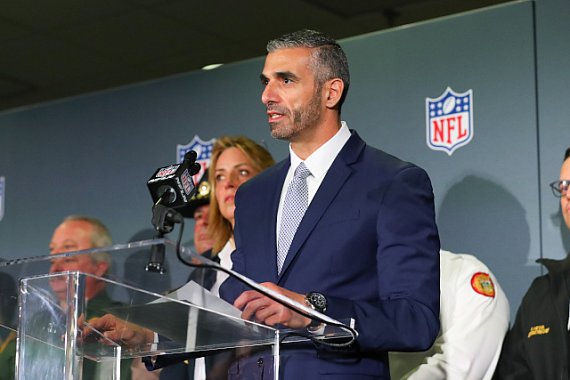
.@UFC announces
details of new anti-doping program ⤵️:https://t.co/LiIP8sgcfXhttps://t.co/LiIP8sgcfX— UFC News (@UFCNews)
December 29, 2023
Ultimate Fighting Championship fighters will
find that little will change for them going forward.
The promotion sent out a press release on Thursday announcing its
new policies on drug testing and doping. Titled the “UFC
Anti-Doping Policy (UFC ADP),” it will begin for the company on
Dec. 31 as it concludes its arrangement with the U.S. Anti-Doping
Agency (USADA). Competitors will still be subject to random drug
tests at any time during the day by the new agency in place, Drug
Free Sport International (DFSI), or an organization DFSI has
contracted out.
All samples will be tested by the Sports Medicine and Research
Testing Laboratory (SMRTL) in Salt Lake City, which currently
handles testing in accordance with World Anti-Doping Agency (WADA)
protocols and procedures. Heading up the program will be Dr. Daniel
Eichner, who currently serves as SMRTL’s president and lab
director. The standard anti-doping tests will run for all samples,
and a percentage of them will be subject to “special analysis”
which checks for difficult to trace banned substances like
testosterone or EPO.
Unlike the UFC’s arrangement with USADA, DFSI will have no say over
failed tests. DFSI will not be granted any authority to levy
sanctions on fighters that test positive for banned substances.
Instead, that power will be given to Combat Sports Anti-Doping
(CSAD). This organization will be run by George Piro, a former
Federal Bureau of Investigation Special Agent who currently trains
at famed gym American Top Team in Florida. The UFC still plans on
keeping a third party as the entity to suggest suspensions or fines
for drug test failures, and CSAD will serve as that body when it
receives findings and results from DFSI.
There will be very few changes to the list of banned substances, as
SMRTL adheres to WADA restrictions, which are almost identical to
those prohibited by USADA. The UFC has stated that it will model
its criteria based on WADA, but not that it will follow WADA’s
criteria directly–it is unclear exactly how the UFC’s will differ
at this point. According to the UFC, some allowable thresholds will
be increased, including marijuana and other products related to
tainted substances or the accidental use of a product. Finally, the
UFC plans on altering the program once in place for listing
Whereabouts, so that testers can accurately locate fighters and
test them. This should include some simplification of the system to
let fighters more easily change their location should they
unexpectedly travel or find themselves away from where they had
listed.

